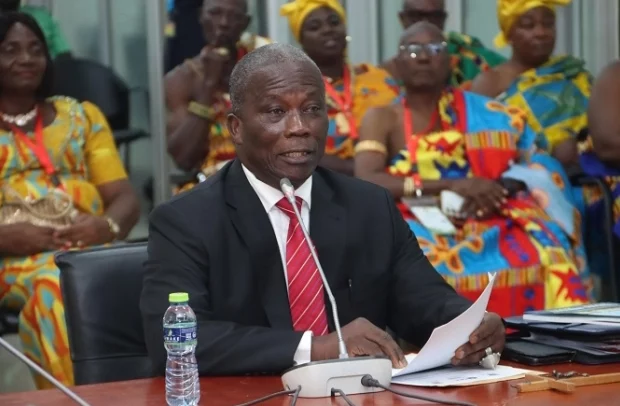Justice Philip Bright Mensah
Supreme Court nominee, Justice Philip Bright Mensah, says the judiciary has a constitutional duty to interpret laws, including actions by Parliament, where necessary.
“If what Parliament seeks to do involves the interpretation of the Constitution, then the judiciary has jurisdiction to assist. It’s not about the judiciary becoming a schoolmaster,” he said.
“Parliament remains master of its own rules. But if those rules raise constitutional questions, the courts may intervene—not to instruct, but to interpret,” he told the Appointments Committee of Parliament during his vetting.
Justice Mensah also mounted a strong defence of the country’s career magistrate system, calling for its strengthening rather than abolition.
He explained that the system emerged after judicial reforms in the early 2000s to fill vacancies in the lower courts, and has since played a vital role in delivering justice, particularly in rural areas.
“Countries like Nigeria and Zimbabwe also use this system. Career magistrates do the same work as legally trained ones. They should be supported to attend law school and advance, not scrapped,” he said.
He cited the example of a judge in Kumasi who began as a career magistrate, later completed legal education, and now serves in the superior courts.
“If we abolish the system, who will serve in the hinterlands?” he asked.
On illegal mining (galamsey), Justice Mensah said the country’s mining laws are strong but poorly implemented.
“There should be effective collaboration between the judiciary, the police, and other enforcement agencies. We’re fighting a common cause. If we don’t act, we risk importing water in 10 years,” he stated.
He also highlighted difficulties in prosecuting foreign nationals, especially Chinese nationals involved in galamsey, due to language barriers.
“Some refuse to speak English in court. It becomes difficult to prosecute. We should consider language training for judges or bring in qualified interpreters,” he pointed out.
Justice Mensah concluded his responses with a strong call for judicial capacity-building and cross-sector collaboration in enforcing Ghana’s laws.
By Ernest Kofi Adu, Parliament House


